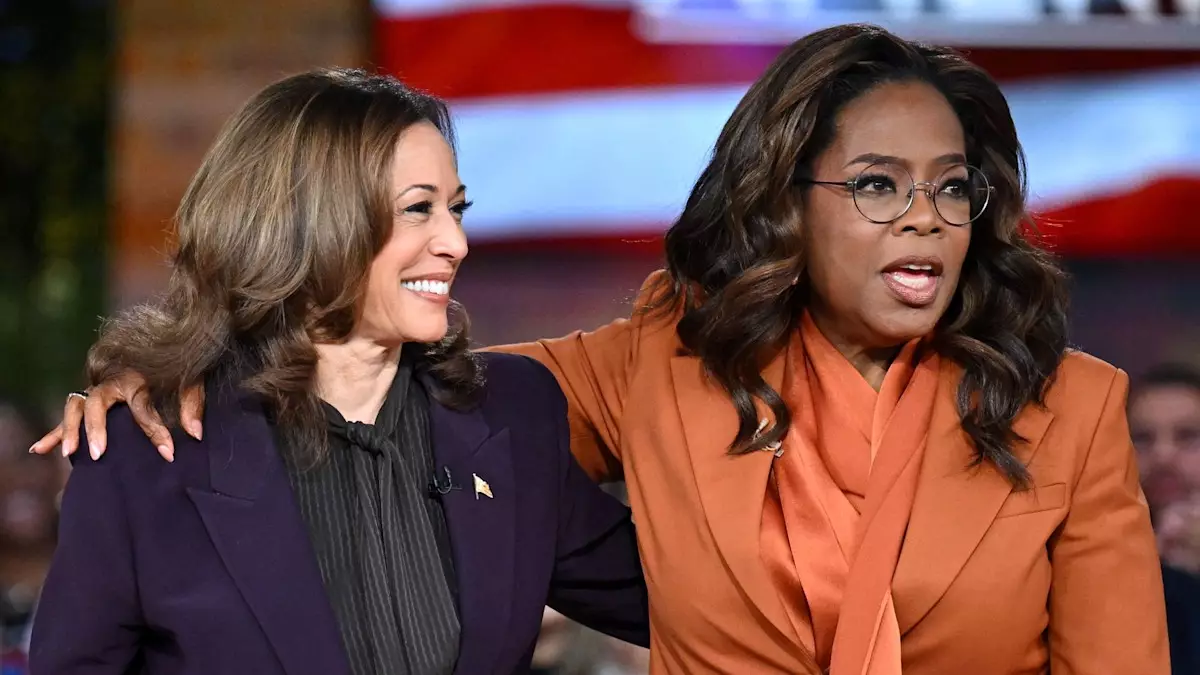In the arena of political campaigning, rumors have the power to shape public perception and fuel discourse. One such instance recently emerged surrounding media mogul Oprah Winfrey and her support for Vice President Kamala Harris during her presidential campaign. Speculations arose claiming that Winfrey had been compensated for her endorsement, raising questions about the ethics of celebrity involvement in politics. As these claims proliferated, Winfrey took to social media to assert that they were not only untrue but damaging to the integrity of political support.
After Kamala Harris’s campaign faced challenges, including a staggering financial deficit and other complications, erroneous reports suggested that Oprah was paid $1 million for her appearances supporting Harris. Winfrey addressed these allegations head-on during an interview with TMZ, firmly stating, “Not true. I was paid nothing, ever.” This emphatic denial underscores a crucial point about the nature of celebrity endorsements: they should stem from genuine belief rather than financial transactions.
Winfrey’s outreach to her fans on Instagram further amplified her stance. In response to a user’s incredulity over the rumors, she expressed gratitude and noted, “I want to high five you and give you a hug.” Her affirmation that her support cannot be bought reflects a widespread sentiment among public figures who engage in political discourse. Such involvement is often misunderstood, and Winfrey’s comments serve to quell the misconception that celebrity endorsements are transactional in nature.
Winfrey elaborated on the operational aspects of her support for Harris’s campaign, detailing her engagement in live-streamed events. She explained that her production company, Harpo, was responsible for the logistics of setting up the live events, which included providing the necessary production crew, equipment, and design elements. While Winfrey emphasized that she did not pocket any compensation, she acknowledged the necessity of compensating her team, thereby highlighting a common misconception about the financial dynamics involved in political appearances by celebrities.
This insight into the production challenges faced during political campaign events presents a nuanced understanding of the behind-the-scenes efforts that often go unnoticed by the public. It also emphasizes that support can carry significant logistical costs, yet does not equate to personal profit for the endorsing celebrity.
Alongside the claims regarding Winfrey’s compensation, rumors circulated about the financial state of the Harris-Walz campaign’s staff. Unfounded assertions indicated that staff members were left unpaid, which contributed to a climate of uncertainty and distrust surrounding the campaign’s operations. However, this misinformation was disproven by employees themselves, who took to social media to clarify the situation.
Marcus Vusovich, a claims officer for the Harris-Walz team, addressed the allegations directly, stating, “We get paid on the 15th and we have 2 weeks of severance. STOP SPREADING MISINFORMATION.” This highlights a growing trend in political discourse where individuals within campaigns must actively counteract unfounded claims and protect their integrity.
As the political landscape evolves, the essence of engagement, especially from influential figures like Oprah Winfrey, must remain rooted in authenticity and transparency. The muddled communication surrounding endorsements and support reflects a broader issue within both political and media ecosystems. Celebrities, often viewed as spokespeople, can either bolster or complicate political messaging based on how their involvement is perceived. As Winfrey’s experience illustrates, tackling rumors decisively is essential in maintaining a genuine narrative within political support systems.
Ultimately, as voters and citizens, understanding the real dynamics at play within campaigns encourages informed discussions and perceptions, allowing for a healthier political environment. Whether through Oprah’s denial of transactional relationships or the proactive measures taken by campaign staffers to counter misinformation, clarity in communication is paramount for the future of political campaigning.

